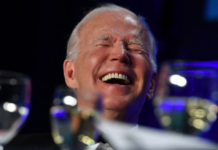It is a significant win for accountability reporting that the media has accepted the Hunter Biden laptop to be a legitimate news source. However, this has not ended media gatekeeping regarding which lines of inquiry are legitimate news.
Glenn Kessler, Washington Post fact-checker, takes issue with the (characteristically sloppy!) allegations that former President Donald Trump made about a $3.5 million wire transfer between Yelena baturina, a Russian billionaire and a company linked to Hunter Biden. Kessler posted the following tweet: “He brought it yet again recently, prompting me to finally resolve what is going on here.”
Kessler’s analysis does not fully exploit the Washington Post’s original documents access. Instead, he relies on anonymous sources with connections to the businesses being examined.
Here’s a little history: Hunter Biden was instrumental in the establishment of a Chinese private equity fund, Bohai Harvest RST. (BHR) in December 2013. American partners retained their shares in the company through Rosemont Seneca Thornton, a shell company. Senate investigators discovered that Yelena Bakurina, the ex-wife and billionaire of Moscow’s longtime mayor transferred $3.5M to Rosemont Seneca Thornton in February 2014. This raises concerns about Hunter Biden’s possible relationships with the Russian oligarch.
Kessler made an important objection.
According to someone with access to the board minutes, almost as soon as Rosemont Seneca Thornton had been created, the partners decided that it should be disbanded.
Chinese corporate records showed that within a year, the foreign investors in BHR had been Rosemont Seneca Bohai LLC with 20 percent and Thornton Group LLC with 10 percent. According to corporate records, Rosemont Seneca Bohai was established as the replacement corporate vehicle on February 13, 2014. This occurred the day before the Baturina transfers.
According to this, Hunter Biden did not have any reason to be involved in Rosemont Seneca Thornton’s acquisition of Baturina’s millions.
However, emails from Hunter Biden’s computer show that the board’s resolution to divide Rosemont Seneca Thornton was not circulated until October 2014. This is eight months earlier than Kessler admits. Hunter is also confronted by Rosemont Seneca Thornton in a February 2015 email from one of BHR partners. Chinese corporate records made public by China listed Rosemont Seneca Thornton in the shareholder list until June 2015, 16 years after Hunter believed the company had been “no longer” as Hunter thought.
Strangely, none these details made it into fact checking.
The laptop is still cited in the story. Kessler pointed out that there was no evidence of “significant interaction” between Hunter, Baturina or the laptop. They also did not find any records that Hunter received $3.5million in 2014. Kessler claims that Hunter Biden received $3.5 million in 2014 from Rosemont Seneca Thornton.
Kessler also acknowledged that Rosemont Seneca Thornton had “unexpectedly” survived under Devon Archer’s control, Hunter Biden’s long-term business partner. He apparently believed that RST would continue to exist solely for Archer’s benefit.
The Delaware corporate records, where Rosemont Seneca Thornton was originally registered, make it almost impossible for the public know who is in control of the company. However, it’s difficult to overlook that Hunter Biden ultimately took 10 percent of Rosemont Seneca Thornton’s original stake. It’s hard to forget that Archer controlled companies and accepted payments on Hunter’s behalf as was the case with Burisma.
This is the mystery that Senate investigators, law enforcement officers, and reporters from across the country are trying to unravel. Kessler’s evidence does not “finally solve” the problem. Worse, Kessler’s fact check gives the illusion of clarity by omitting documents that directly relate to the issue. This is precisely why it remains a mystery.
This is not intended to reduce overheated political rhetoric but to give the impression that the issue is now resolved and that further reporting might fall under the much-feared banner of “misinformation.” A newspaper that has to reckon with the failure of the mass media to take seriously the laptop is a big step backward. It’s outright malpractice, according to fact-checking.




